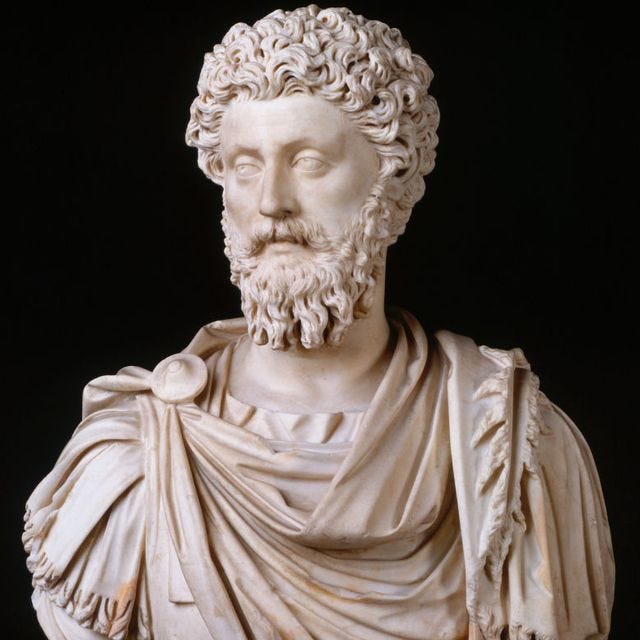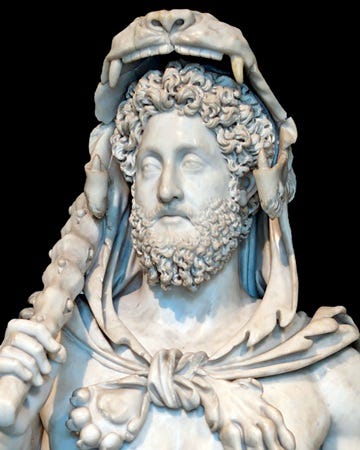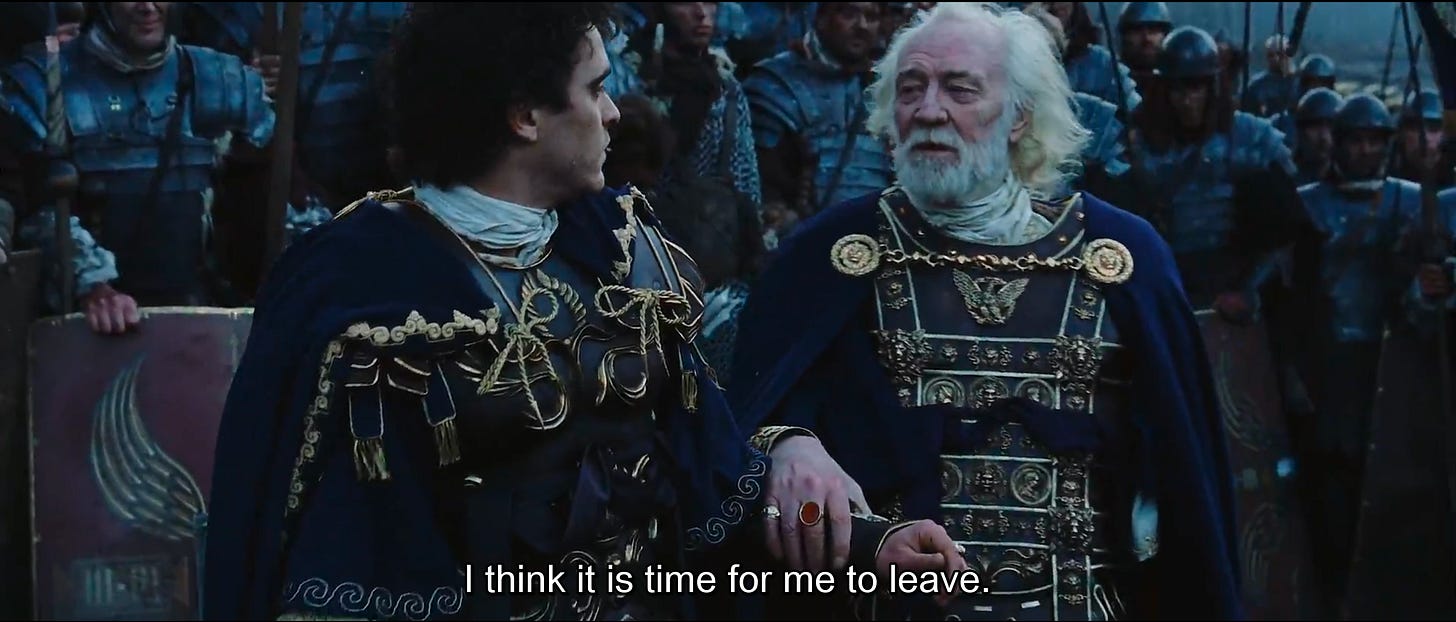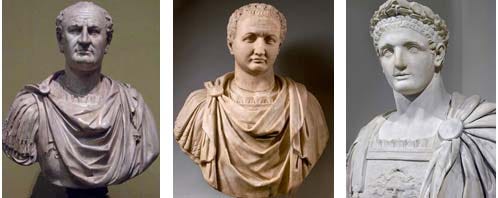Marcus Aurelius and Commodus
Why did Marcus Aurelius let Commodus succeed his as Emperor?
Marcus Aurelius and Commodus were both Roman Emperors, father and son, and amongst the most noted Emperors in the Roman line.
However, they were noted for different reasons.
Marcus Aurelius was a near Platonic Philosopher King. He was raised from a youth to be scholarly and learned. And as Emperor, he waged many successful wars against the Germanics, even though he wasn’t militarily trained.
His book, Meditations, focused on his Stoic philosophies amidst his time as Emperor, and is still available to read today. He stands amongst the very greatest of Roman Emperors, and incidentally is my favourite (with Augustus, Claudius, Trajan and Constantine the Great up there for good measure).
Commodus, in contrast, succeeded his father after Marcus’s death from plague in 192 AD. His reign though is noted for his excesses and depravity. He ended the Germanic wars, and spent a lot of his tenure fighting as a gladiator in the commonly-held games. He died by the hand of Narcissus, a gladiator, following a palace coup to unseat him.
The relationship between the two was played up in the great film Gladiator (2000). However, this should be taken with a pinch of salt. Commodus didn’t suffocate Marcus, and Marcus didn’t choose anybody else to be Emperor. In reality, Commodus was Marcus’s legal co-Emperor in the latter years of his reign, even though he held the true power as the senior of the two.
It was akin to himself and Lucius Verus, who both were co-Emperors after their predecessor and adopted son Antonius Pius died in 161 AD. Legally, they both were Emperors, though as Marcus had studied for the role more intently he was Pontifex Maximus (chief Roman Priest), as well as censor (public moral guide) and Leader of the Senate. So in practice, he was the senior of the two.
There were rumours in real history that Commodus killed Marcus. Commodus was the last person to see Marcus alive, as he died from plague, but this was and I guess never can be proven.
But even though Commodus was a world apart from his father, did the great Marcus Aurelius make a mistake in appointing him as Emperor?
Hereditary principle
Roman Emperors were not kings. The formation of the Empire by Augustus - which saw a consolidation of the chief Republic roles in his person - was to mimic the Republic’s constitution without breeching the long-held revulsion of kings Romans at that time held.
But after Augustus died, he made his close relative Tiberius his successor. Augustus himself inherited much of his wealth and titles from Julius Caesar. Caesar was never an Emperor in the standard sense. But his role as Dictator in Perpatuem was a definite proto-Emperor role, and was a clear model of how things were to unfold.
All of the Emperors from Augustus to Nero were related - the Julio-Claudian dynasty.
Vespasian and his sons, Titus and Domitian, formed the Flavian dynasty.
And the Five Good Emperors - Nerva, Hadrian, Trajan, Antonius Pius, and Marcus Aurelius - were not related by blood but were adopted sons.
The central theme here is that Romans at the highest levels - whether patrician or by virtue of office - were expected to pass down their holdings to relatives.
Whilst Emperors were not kings, the Imperatorship clearly held a near monarchial descent. Whilst there were breaks in the line of descent, it still followed a general line of dynasties from Augustus to Romulus Augustulus (the last Western Roman Emperor). The Byzantines too held this principle, which they naturally inherited from their united Roman Imperial roots.
So Marcus Aurelius had no choice, given Roman mores and practices, to not appoint Commodus as his successor.
He had no cause to buck tradition. And Romans were arch-traditionalists who by and large didn’t like much social change.
Consequences
Had Marcus Aurelius, if he noted Commodus wasn’t responsible during his lifetime, appointed another person as Emperor, this may have caused a civil war.
this is based on the hereditary principle as stated above.
Say if Marcus made his head Pretorian Emperor after his death. Commodus and his followers would rightly have been aggrieved, and there would have been two evident factions. One supporting the old moral order and Commodus. And the other supporting the legally appointed Emperor, in the former head Pretorian.
It would have been needless carnage, over a minor point.
Marcus was indeed highly wise.
But he respected tradition as all Romans did. And he had to adhere to it as Emperor.
Sometimes things in life go via unfortunate turns. Maybe nothing could be done to ensure a good succession in this case. Maybe Commodus was naturally more depraved than his father.
We’ve seen this in other avenues. Edward I of England was a stalwart militarily and in his development of Parliament. But his son, Edward II, was anything but, and was the first English king to be legally deposed by his subjects. Parents and children can often be very different people - and it may just have been an unfortunate turn of history in this case.




